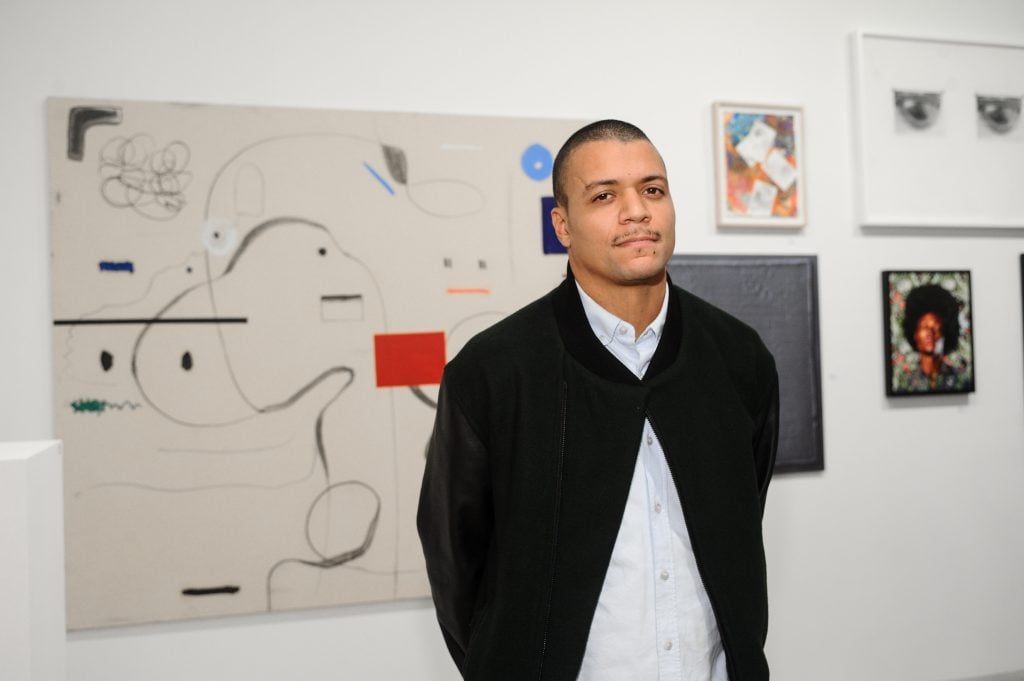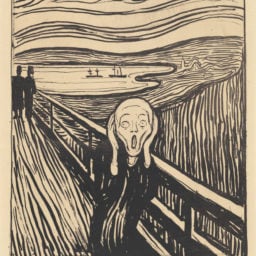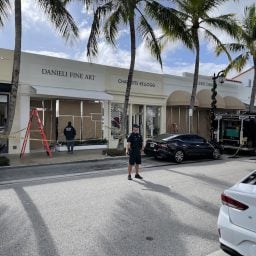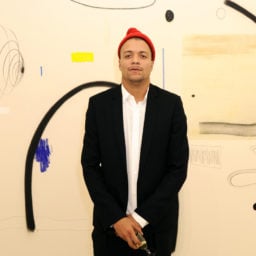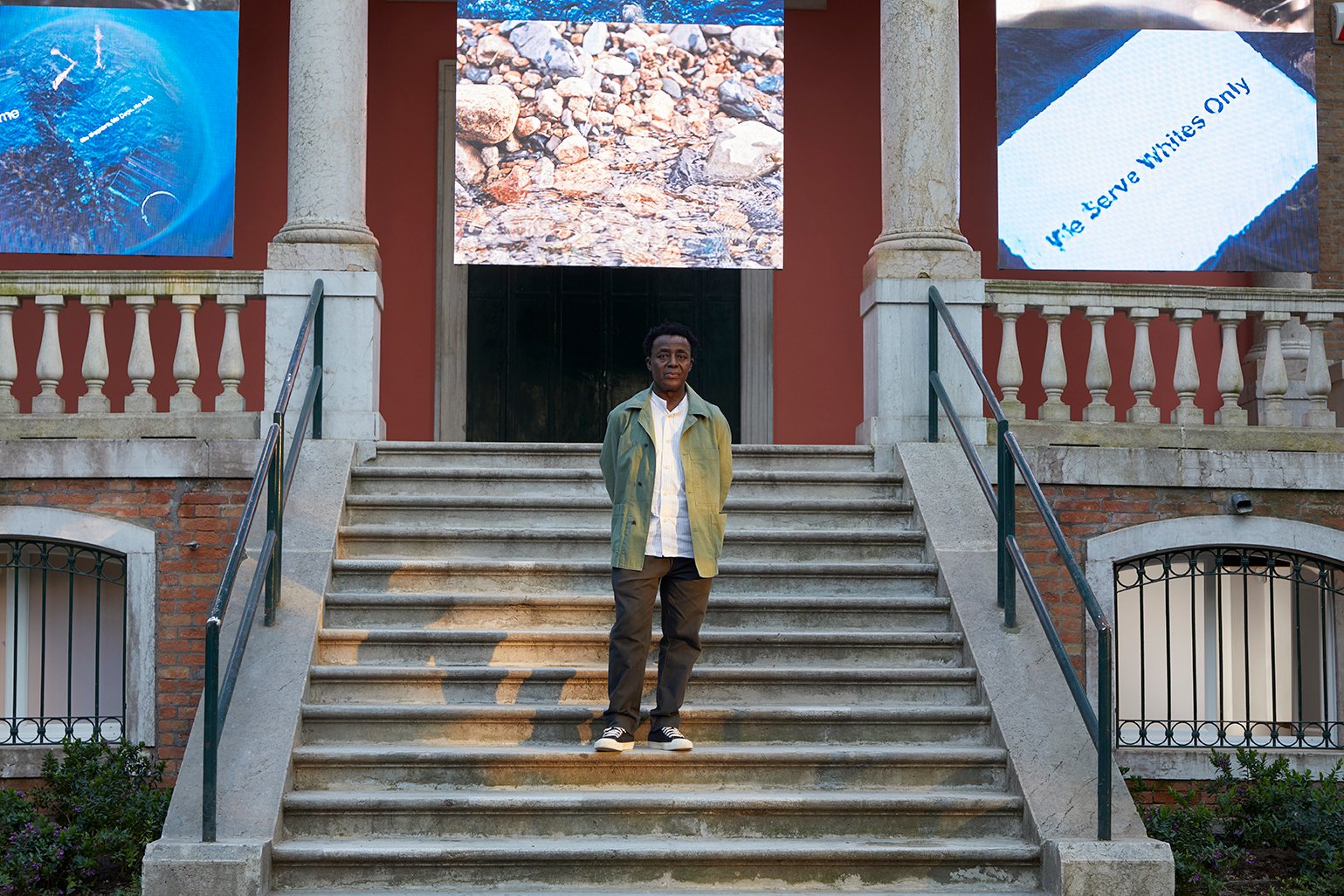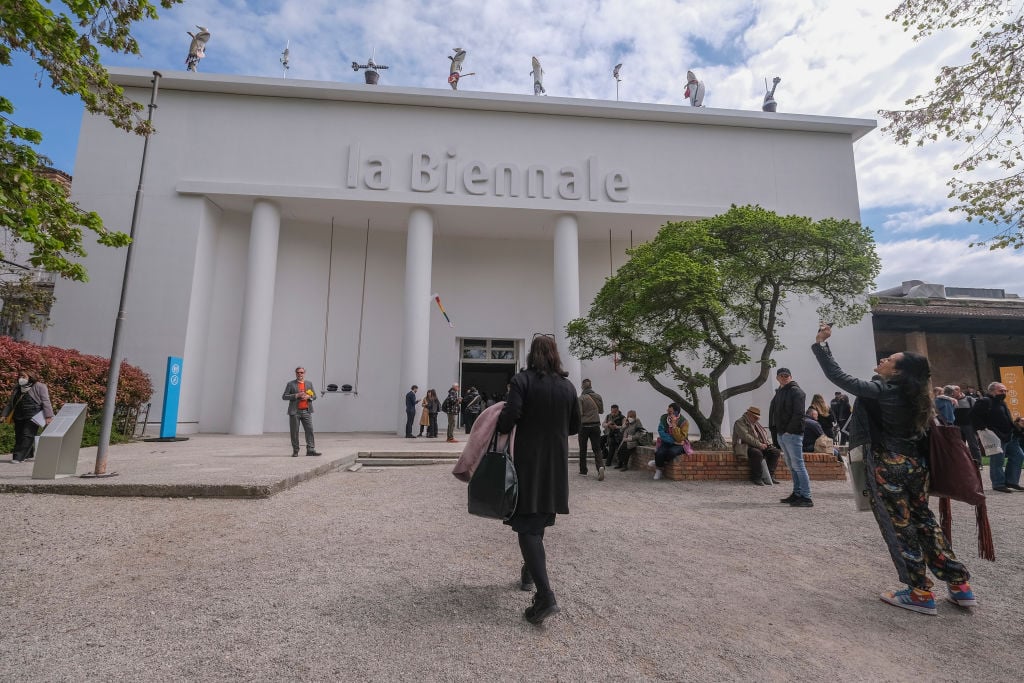An artist who was on the fast track to fame before his career fizzled out has been indicted for allegedly selling fake works purportedly by his friend and mentor Raymond Pettibon. Federal authorities have accused 43-year-old Christian Rosa of selling a quartet of inauthentic paintings and forging the more famous artist’s signature.
The artist “swindled buyers out of hundreds of thousands of dollars, and risked a New York artist’s legacy, through his forgery scheme,” U.S. Attorney for the Southern District of New York Damian Williams said in a statement.
The scam reportedly went down from 2017 to 2020, before Rosa was exposed by Artnet News in January.
Savvy art collectors had grown suspicious of one of the ersatz Pettibons on the market; the bright blue waves had an unusual green tint to them and the signature looked almost practiced.
The rumor was that Rosa had taken incomplete works from Pettibon’s studio during a visit and added the finishing touches and signature himself. Once alerted, Pettibon’s studio tipped off the authorities.
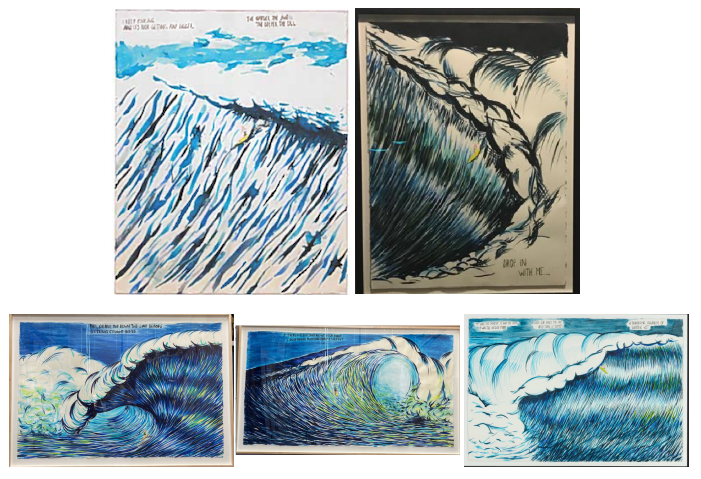
Raymond Pettibon, Untitled (“I Keep Pouring . . .”), 1997; Untitled (“Drop in . . .”), 2011; Untitled (“Bail, or bail out . . .”), 2012; Untitled (“If there is a line . . .”), 2016; Untitled (“It was the Moment . . . ”), 2013. Photo courtesy of U.S. Attorney’s Office
Southern District of New York.
The day after the Artnet News story was published, Rosa emailed a coconspirator, saying “the secret is out,” according to documents quoted in the indictment. He also emailed Pettibon, claiming the piece pictured in the article “is an overpainted print made from a friend from Austria.”
Rosa fled the country within a month. News of his indictment was first reported by the New York Times.
In 2019, Rosa had emailed a friend about selling “certain unnamed paintings,” noting that “they’re asking about the certificates, how we’re getting them.” When the friend later asked why the sale had yet to go through, Rosa responded that he needed a buyer who was not going to flip the work at auction.
“I am not trying to get busted, so that’s why it’s takeing [sic] longer,” Rosa wrote.
Rosa is alleged to have hawked four works and duped two buyers. Prosecutors claim Rosa bought a house in California using proceeds from the sale of two of the works. After leaving the U.S., he sold the home and tried to transfer the funds abroad.
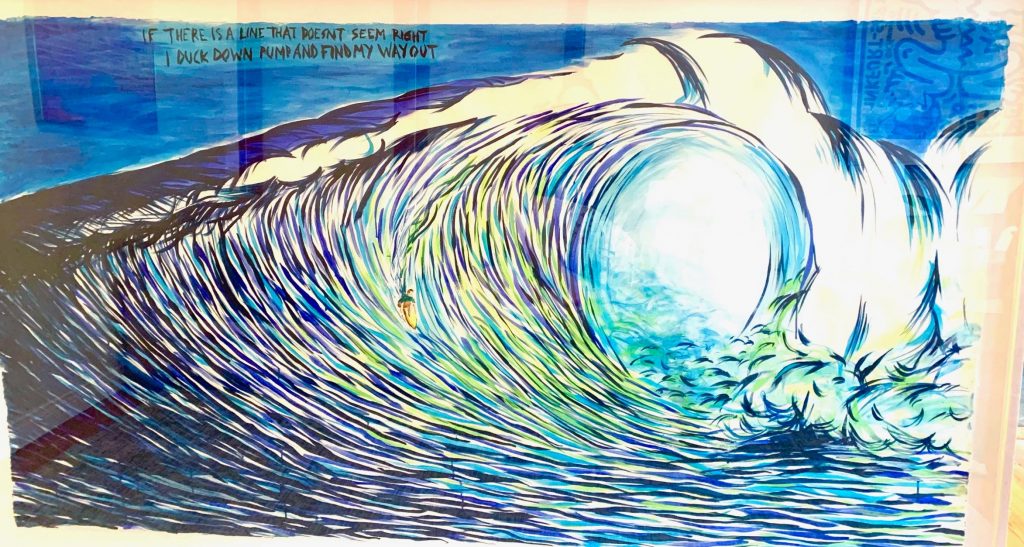
The full Pettibon work that was taken from the studio, with text by Christian Rosa at the top left. Photo courtesy a tipster.
Rosa became a hot commodity in the art market during the so-called Zombie Formalism craze in the mid-2010s. His career peaked in 2014, when he had a sold-out show during Berlin Gallery Weekend and Christie’s New York auctioned one of his works for $209,000. But as that market bubble burst, Rosa saw his prices tumble. Five of his abstract paintings have come to auction this year, and none has exceeded $40,000, according to the Artnet Price Database.
Pettibon, 64, was something of a mentor for the younger artist, having shown alongside him in a downtown exhibition and promoting his career in interviews. He first gained fame in the New York punk scene in the 1980s as the creator of cover art for albums by Black Flag and Sonic Youth. More recently, he has earned blue-chip recognition with his paintings and drawings of monumental waves that dwarf small surfers, which can sell for upwards of $1.5 million.
Pettibon’s gallery, David Zwirner, did not respond to inquires from Artnet News, and Rosa could not be reached for comment.
Rosa’s indictment follows an investigation by the Southern District and the FBI’s Art Theft Crime Team. Facing charges of wire fraud conspiracy, wire fraud, and aggravated identity theft under what appears to be his full name, Christian Rosa Weinberger, he is accused of having forged Pettibon’s signature on certificates of authenticity for the works.
If convicted, Rosa faces up to 20 years in prison.
Follow Artnet News on Facebook:
Want to stay ahead of the art world? Subscribe to our newsletter to get the breaking news, eye-opening interviews, and incisive critical takes that drive the conversation forward.
